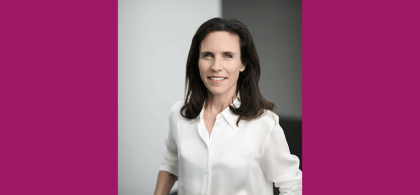
CSR: 10 lessons from Elodie Bernadi, Director at L’Oréal France
Élodie Bernadi was invited by the Department of Corporate Relations in late February to share with our students the issues around sustainable beauty and the commitment of L’Oréal to achieving this, which she did with enthusiasm and conviction. This NEOMA graduate spent an hour demonstrating the concrete actions the company is taking to reduce its impact. Here we look at the main takeaways from her talk.
- CSR is global transformation: It is not just an occasional initiative, but a profound change affecting the whole of the value chain, from the sourcing of raw materials to the finished products.
- Science is central to decision-taking: L’Oréal bases its CSR strategy on the concept of planetary limits, using scientific research to measure and control its impact.
- The importance of eco-design: Right from its conception, packaging must be designed to be sustainable, recyclable and lighter. L’Oréal uses the ‘3Rs’ rule: Reduce, Replace, Recycle.
- Refills and reuse are the solution for the future: L’Oréal sets great store by refills to limit the use of plastic and encourage more sustainable consumption.
- Innovation is a driver of sustainability: The Company sees sustainability as a real area of innovation par excellence, both in the eco-design of its current catalogue and in new beauty initiatives such as solid shampoos, no-rinse products and refills. Technology is also central to this approach by working on ways to save water and energy, especially for hairdressers.
- A strategy of commitment at several levels: L’Oréal acts internally, with its suppliers and clients, but also via actions that go beyond the cosmetics sector such as its 200 million-euro fund, a partly philanthropic fund for women greatly at risk because of climate change or natural disasters and for the climate and regeneration of ecosystems.
- A responsible approach to advertising and marketing: Sustainability criteria are now included in the group’s communication strategies: to reduce the carbon footprint of publicity campaigns, to develop lighter digital content, to limit the travel and number of people involved in filming, to prioritise film locations with renewal energy, etc.
- Active management of the carbon footprint: L’Oréal has set itself ambitious objectives, such as 100% renewable energy for its sites by 2025 and a drastic reduction in emissions related to the transport of products.
- Leadership based on credibility and transparency: CSR must not be a marketing facade, but a measurable commitment integrated into strategic decisions.
- The role of public bodies and companies: The ecological transition does not rely solely on the State; major companies must set an example and encourage the adoption of good practice at every level.



